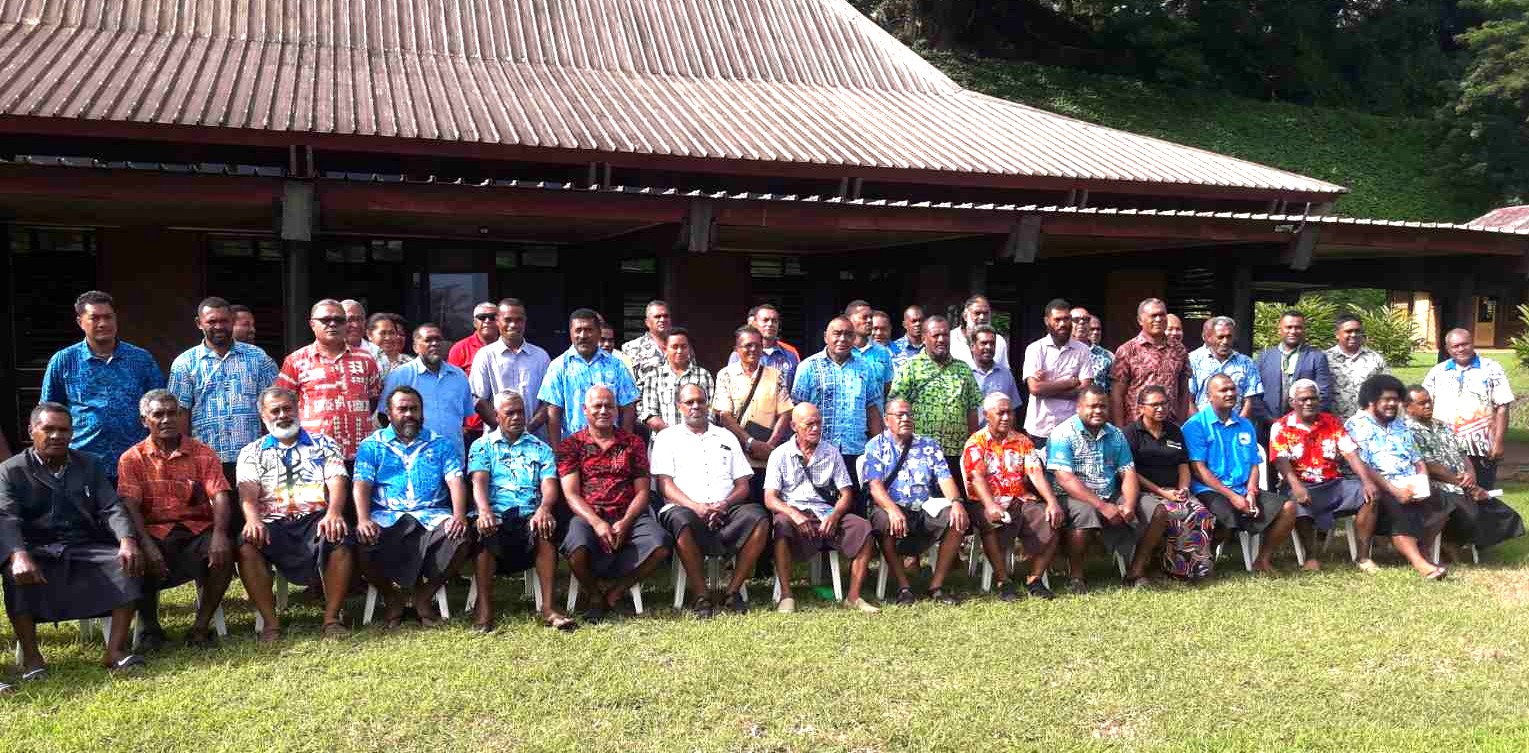
Taveuni Forestry Reserve Consultation Brings Stakeholders Together
Somosomo Village, Taveuni- In a significant step towards sustainable forest management, the Ministry of Forestry held a comprehensive consultation at Somosomo Village on Taveuni Island last week.
The event brought together a diverse group of stakeholders, including district representatives from Wainikeli, Vuna and Cakaudrove, natural resource owners, village headmen, local farmers, and representatives from the tourism industry, the Pacific Regional Environment Programme (SPREP), various NGOs and government ministries.
The consultation was officially opened by Maleli Nakasava, the Director of Operations for the Northern Division of the Ministry of Forestry, who spoke on behalf of the Minister for Fisheries and Forestry. In his opening remarks, Mr. Nakasava emphasized the importance of the event, highlighting the unique role Taveuni plays in Fiji's forestry sector.
"This consultation is very important, not only to the Ministry of Forestry but for the people of Taveuni and our nation as well," Mr. Nakasava stated. He outlined the historical significance of the forestry reserves on Taveuni, noting that the island is home to some of Fiji's oldest and largest forest reserves.
The Taveuni Reserve was established in 1914 and the Ravilevu Reserve was established in the 1950s. These reserves, along with the Bouma National Heritage Park, underscore the island's critical environmental value.
However, Mr. Nakasava acknowledged the challenges in managing these extensive areas. "The problem is not with the forest or the trees but with the people," he noted, stressing the need for more community engagement and dialogue. The Ministry recognizes that past efforts have focused heavily on forest management while neglecting the needs and involvement of local communities.
He called for a new approach, one that includes more frequent and meaningful consultations with Taveuni's residents. "The forest is fine on its own; it’s the people that we need to visit more, sit down with, discuss, and have talanoa sessions with," Mr. Nakasava said.
He highlighted the gratitude of the Ministry for the community's willingness to set aside large portions of land as reserves but also emphasized the necessity of ensuring that these communities can thrive economically without compromising the forest.
Mr. Nakasava pointed out the delicate balance between agriculture and forestry, stressing that the health of Taveuni’s soil and its agricultural productivity are essentially linked to the forest. He reiterated that sustainable management requires a collective effort from all stakeholders.
The consultation aimed to achieve four main objectives:
1. Create awareness about the role of Forest Wardens.
2. Inform stakeholders about the current status of the reserves.
3. Develop a strategy for inclusive management of the reserves.
4. Listen to the views, issues, and grievances of the local community.
Mr. Nakasava expressed hope that the consultation would mark the beginning of ongoing and fruitful discussions, emphasizing the need for a collaborative approach to forest management. "We need to manage the forest together," he concluded.
The event marked a pivotal moment in Taveuni’s journey towards sustainable forest management, setting the stage for continued dialogue and cooperative efforts to preserve the island’s invaluable natural resources.
-End-